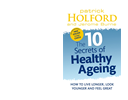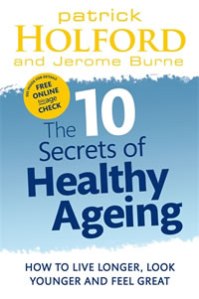For years skeptics and mainstream dietitians have had just two things to say about taking vitamins and any other sort of supplement – there is no evidence they work and anyway you can get all the vitamins and minerals you need from a healthy balanced diet (HBD).Repeating this, whatever any new research finds, has proved a highly effective tactic in discrediting vitamins, especially among doctors who have virtually no nutritional training, The official line is that we – people doing proper medicine – have good evidence that vitamins are a con – and you, vitamin sellers, are fraudulently selling false hope.
Now if this was true you would expect that researchers on the New Scientist magazine would be able metaphorically to chew up these evidence-free claims for breakfast. Show just how weak and flawed were the trials the vitamin peddlers relied on and how solid and authoritative the trials that showed they had no benefit.
But the article in last week’s issue – A-Zinc of vitamins – revealed just the opposite.They totally misreported the situation with high doses of B vitamins as a way of slowing down or preventing the brain shrinkage that comes with dementia, claiming trials showed no benefit. True that was only one supplement out of 20, supposedly assessed on the basis of the latest good evidence, but they did it so badly that it calls into question all their other judgements.
The team totally ignored one strong high quality randomised controlled trial that found very positive results from taking high dose B vitamins, exactly the kind of scientific research that the skeptics are always demanding, and instead relied on at least two very poor quality trials that seemed to have been designed with the sole intention of proving that B vitamins were a waste of time.
Dismissing vitamins is the irrational view
For details of the research involved and why is is hard to believe that the New Scientists approach was well-informed and unbiased have a look at the latest post on HealthInsightUK.org. And if the New Scientist, bastion of a rational, science based approach to the world, has got it so wrong then where does that leave all the rest of the supplement detractors?
I don’t believe that taking vitamins is a panacea, getting them from good wholesome food is obviously preferable to relying on pills, some of the claims for vitamins may well be unfounded, more good quality unbiased research is essential. I’m not an idiot and nor are most of the people who use supplements and have found them beneficial. In fact given poor health and poor nutritional state of so many people in the UK ,maintaining a blanket dismissal appears the irrational view.
As for the HBD being the only supplement source you need, that’s looking increasingly irrational too.The official view advises low fat, a recommendation with a shrinking evidence base, and it’s just not true in the case of Vitamin D, omega 3 and high dose B vitamins.
So get hold of a copy of the original article if you can – it’s on the New Scientist’s site entitled “A to zinc: What supplements are worth taking?” – but it may only be available to subscribers – and upload a comment here about any blatant misrepresentations you spot. Such a clear statement implying that most of you are gullible idiots deserves an equally clear rebuttal.



Thanks for another interesting article and just to pick up on the line in the first paragraph “especially among doctors who have virtually no nutritional training”. It would appear that this is a most valid point considering that earlier this month at theheart.org on Medscape, an article was published as follows:-
“Editor’s Note: A commentary in the September issue of the American Journal of Medicine criticized the deficiency of nutrition education in medical training. Citing a 2013 report on US health that identified dietary factors as the single most significant risk factor for disability and premature death, the authors (who included diet gurus Drs. Dean Ornish and Andrew Weil) call for changes in medical school curriculum to address the deficit. Lead author Stephen R. Devries, MD, spoke with theheart.org | Medscape Cardiology.
Dr. Devries: It’s been clear to me for some time that nutrition has not been high on the radar in clinical cardiology. I know from my own training 25 years ago that I received essentially no education in nutrition in 3 years of internal medicine residency and 4 years of cardiovascular fellowship training. Unfortunately, despite the knowledge gained in the interim about the link between nutrition and health, very little has changed regarding the paucity of nutrition education over the past 25 years.
It struck me as a peculiar paradox that clinical practice guidelines highlight the primary importance of nutrition and lifestyle, yet the physicians who are expected to implement these guidelines receive absolutely no education in these areas during their residency and subspecialty training.”
Perhaps our medical schools will take note of what’s happening on the other side of the pond and make studying nutrition a key basic foundation to any medical degree so that we don’t have to rely on the “polypill” that seems to have already been approved by experts and institutions https://www.polypill.com/
And I did buy that copy of New Scientist and found it fairly flimsy.
Supplements are a variation on the theme of ‘pop a pill’ Allopathy and given that most are self-prescribed, potentially dangerous. Anything which is artificial, even in natural form, which most supplements are not, is potentially damaging to the body because we have simply never evolved to consume things in this way.
There is a huge difference between taking a herbal medicine which is a natural food in concentrated form, for a few weeks, and swallowing a jug of ‘krill oil’ every day, or whatever ‘takes your fancy’ every day for months or years.
We have evolved over millennia, and no doubt were created in the first place, to get the nourishment we need from food, so, how can an artificially created and concentrated collection of vitamins and/or minerals be properly assimilated by the body and, in the doing, provide nutrition in the same way that food can?
Common sense would make us question the entire theory of vitamin and mineral supplements if we have some understanding of physiology and even more so when we understand that more than 90% of such supplements are made from synthesized materials.
So, not only are supplements asking your body to digest and assimilate materials consumed in an artificially created form, in ways alien to that which food would deliver or require, but it is also asking your body to do so with something synthetic, an imposter in essence, masquerading as something natural.
In recent decades the supplement industry has gone from strength to strength, riding on the back of lazy, indulgent, medically driven health practices sourced in a philosophy of, ‘don’t think about your body or your health in any serious or committed way, just pop a pill and get on with life.’
Or death as the case may be for it always seemed to me, applying liberal doses of common sense, that if vitamin and mineral supplements were artificial in form and in application then at best they might do little or nothing and be excreted in potent and expensive form, and at worse they might do harm, if not prove deadly.
This is a link to an article I wrote on supplements.
I don’t disagree in theory with what you’re saying but you are approaching things from a person who appears to be in good health. I for example have a condition known as hypothyroidism; whilst I diagnosed myself about 40years ago it has taken 33years to get Drs to agree and therefore finally treatment. This condition cannot be solved by good diet and exercise. In order to relieve my symptoms I need addition thyroid hormone and because I have not had good levels of hormone for so long my health had severely declined and the list of symptoms growing.
I do eat a good diet and avoid drugs of any kind but one thing hypothyroidism does is to cause digestive disorder and your body fails to absorb nutrients from your diet so eating good food is just as wastful as taking supplements in that situation – it goes straigh down the loo.
Finally with my treatment and with various vitamins and mineral supplements and herbs to improve deficiencies including B12 injections, I am feeling much better. I see a Dr who is nutritionally aware and bases her treatments accordingly.
So you see your response is too generised and based on good health – I agree with you good healthy people eating a good healthy diet and avoiding nasty chemicals where possible may not need supplements but that isnt everyone and actually I believe everyone or at least everyone in the Western world needs certain supplements. I am nutritionally aware being a vegetarian since birth a nurse a midwife and an subject interested person; born to a family of meat eaters so nothing to do with morals or ethics.
However, if you exercise or sweat or drink alcohol you should take additional magnesium at the very least – even if you’re apparently healthy…..magnesium is low in our soils so vegetables are low in magnesium. Further since we are herbivores who have taken to eating meat we should also take Vitamin C not least because those eating meat eat less veg but we don’t eat as many calories due to modern life and therefore cannot get adequate amounts of Vit C into our body.
Argue all you like about whether we are vegetarians due to canine teeth etc but since there are four species of mammals that do not produce vitamin C, they are ALL vegetarian and humans are amongs them; every other mammal and especially those who eat meat manufacture their own vitaminC, its pretty convincing; (but I’m not trying to preach or convert anyone I’m not concerned about other people eating meat that isnt the issue). Its not that humans evolved not needing vitamin C but simply we are meant to get huge quantities through out diet, from munching on fruits nad berries, and roots etc throughout the day; not practical in the modern world So even if you’re healthy supplements are not inappropriate.
Vitamin C has acculmulated about 4 Nobel Prizes including Linus Pauling who is the only person to have two Nobel Prizes without sharing with anyone else, ever; ( I think Florence Nightingale got two but she shared hers). He swore Vitamin C should be taken in high doses and he took around 36g daily thorughout the day.
If you do take vits and minerals take naturally sourced ones not chemical substitutes and never take them instead of a good diet.
By the way I take pig thyroid and not synthetic substitute Thyroxine, so whilst I am ‘pill popping’ I believe its necessary and is ok to do so in my circumstances. Yes and I’m veggie, no problem to me that it’s pigs thyroid, I simply don’t like the taste and texture of eating meat it makes me sick.
We are all a little bit different, and that has to be a good thing.
I haven’t been able to read the whole article. There will always be conflicting views around the benefits of vitamins..much of the negative view comes from skeptic circles. I have found that there are always studies to back up the health benefits of vitamins and supplements-one has first to understand their role in our physiology to get a full picture of the vital role they play in keeping us well. There will always be superior and inferior vitamins. Often, we have to do our own research to find what will support us to be healthy. As for skeptic/pro-pharma lobby arguments-it’s business as usual-outright lying and saying that there is no evidence of benefit when there clearly is.